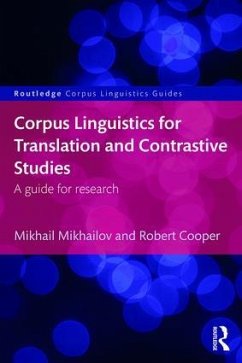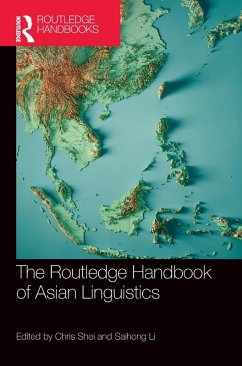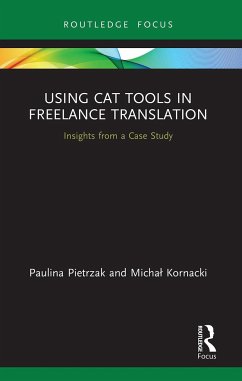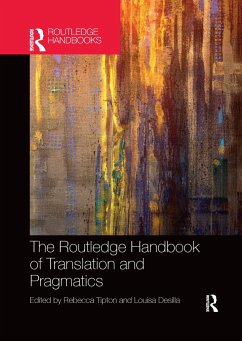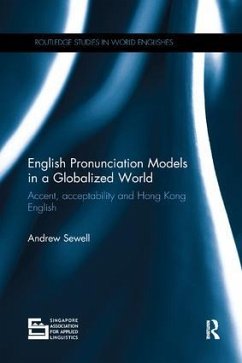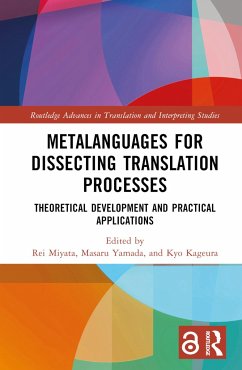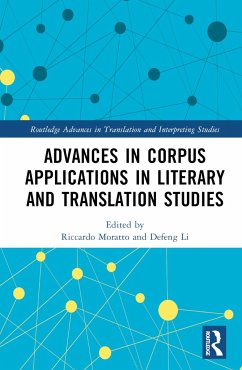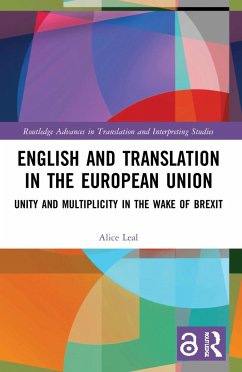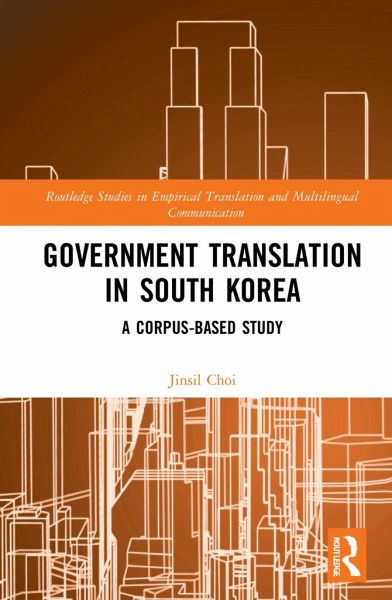
Government Translation in South Korea
A Corpus-based Study
Versandkostenfrei!
Versandfertig in 6-10 Tagen
154,99 €
inkl. MwSt.
Weitere Ausgaben:

PAYBACK Punkte
77 °P sammeln!
Government Translation in South Korea: A Corpus-based Study is the first book to investigate and discuss translation processes and translation products in South Korean government institutions, employing a parallel corpus-based approach. Choi identifies different agents and procedures involved in institutional translation practices, discusses linguistic and genre features of translations, and investigates changes made in translations compared to the original documents, during the two Korean presidencies of Lee Myung-bak (2008-2013) and Park Geun-hye (2013-2017).Choi's book explores important fa...
Government Translation in South Korea: A Corpus-based Study is the first book to investigate and discuss translation processes and translation products in South Korean government institutions, employing a parallel corpus-based approach. Choi identifies different agents and procedures involved in institutional translation practices, discusses linguistic and genre features of translations, and investigates changes made in translations compared to the original documents, during the two Korean presidencies of Lee Myung-bak (2008-2013) and Park Geun-hye (2013-2017).
Choi's book explores important facets of Korean government translation in the belief that practices associated with the normative meaning and concept of government translation have to be displaced into the wider understanding of the concept of translation as a social construct. Drawing on the theoretical frameworks of institutional translation and critical discourse analysis-informed corpus-based translation studies, the chapters discuss the practice, process and products of Korean government translation. The Korean-English parallel corpus methodology used introduces a systemic way to analyse changes in Korean government translations, based on a personally built sentence-level tagged corpus, both qualitatively and quantitatively. This volume will be of great interest to scholars and students of translation studies as well as Korean studies.
Choi's book explores important facets of Korean government translation in the belief that practices associated with the normative meaning and concept of government translation have to be displaced into the wider understanding of the concept of translation as a social construct. Drawing on the theoretical frameworks of institutional translation and critical discourse analysis-informed corpus-based translation studies, the chapters discuss the practice, process and products of Korean government translation. The Korean-English parallel corpus methodology used introduces a systemic way to analyse changes in Korean government translations, based on a personally built sentence-level tagged corpus, both qualitatively and quantitatively. This volume will be of great interest to scholars and students of translation studies as well as Korean studies.




